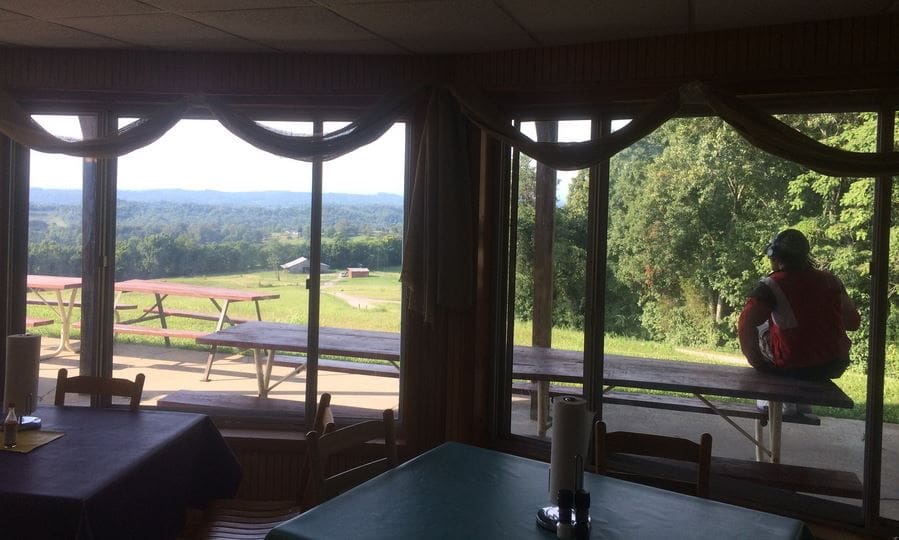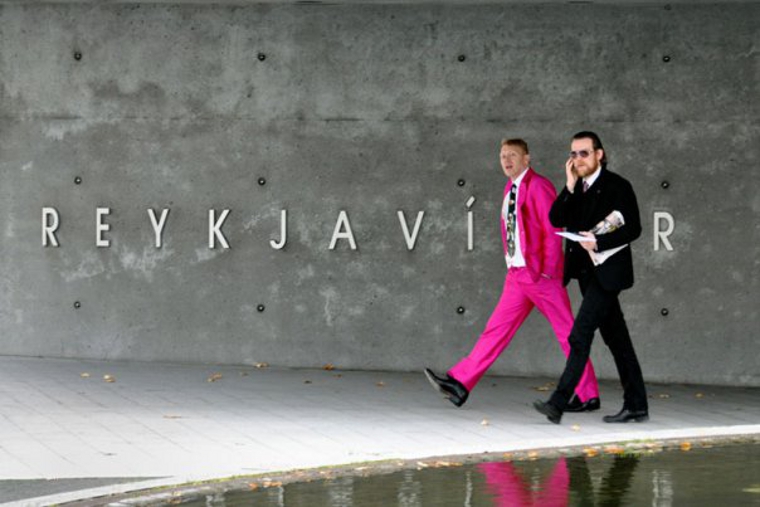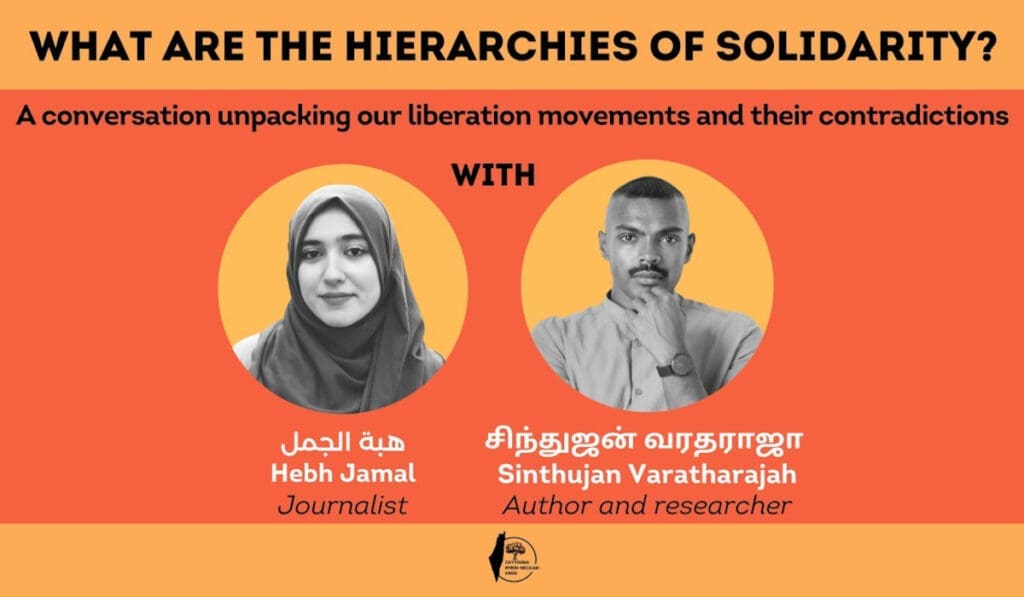Transcribed from the 1 September 2018 episode of This is Hell! Radio (Chicago) and printed with permission. Edited for space and readability. Listen to the whole interview:
There is no national solution to America’s race problem. Everything that happens in America is because of a global system of racism which affects all of us. We need to think not about how we get better access in our nation-states, but about how to end the whole system which creates the nation-state in the first place.
Chuck Mertz: There is an alternative, and it is black radicalism. Here to explain how black radicalism can save us all, sociologist Kehinde Andrews is author of Back to Black: Retelling Black Radicalism for the Twenty-First Century. Kehinde is associate professor of sociology at the school of social sciences at Birmingham City University in England, and he developed Europe’s first black studies undergraduate degree.
Welcome to This is Hell!, Kehinde.
Kehinde Andrews: Hi, thanks for having me on.
CM: It’s great to have you on the show.
This is a fascinating book. You write about a protest in the wake of the killings by police of Philando Castile here in the United States, in Minnesota, and Alton Sterling in Louisiana—but not any protest: a protest in Birmingham, England. You describe the second city of Britain in the twenty-first century, and remark, “the picture tells us how little things have changed in the last fifty years, and speaks to the global nature of racism.”
What has been the reaction in England to the explosion of police killings here in the United States finally being challenged as unwarranted and unnecessary, with shootings in the US even being charged as crimes—manslaughter or even murder? What has been the reaction in England?
KA: The reaction in England has been as though these were our relatives who were killed. That’s something that surprised people here, because in England police don’t carry guns, so there are very few people who are actually killed by the police (although you are still about three times more likely to die in custody of the police if you are black in Britain).
But particularly with Philando Castile, when you saw it on Facebook, and you saw a man bleeding out, there was a mass reaction in the Black Lives Matter movement here. Thousands of people came out into the streets. That surprised people, because they were like, “Surely that’s just an American thing, why are British black people getting upset?” But it really does tell you about the global nature of the connections among black communities. Something that happens in America, it happens to us here equally and in the same way.
CM: How global is the fight against racism? How international is it? And to what extent do we make a mistake, especially here in the United States, when we only see racism as a battle within our own national borders? Making international connections was a big part of the black radicalism of the early twentieth century in the US, and played a role in the black power movement in the sixties here as well.
What do we miss when we see the issue of police violence against blacks as only a national issue and not a global issue?
KA: Malcolm X is famous for saying a number of things, but one is “There’s no such thing as an American problem, there is a world problem.” What happens in America gets picked up by people across the world. There is probably more of a national politics in America where the killings of people in Europe aren’t that important, or things happening outside of American borders aren’t that important. And that really is a problem. Thinking about this nationally really restricts the kind of politics you can have.
If you think about the problem as an American problem, then you think: What can congress do? How do we get reform? How can we get access? How can we get a black president? And what you realize, hopefully, given the last fifty years, is that there is no national solution to America’s race problem. Everything that happens in America is because of a global system of racism which affects all of us. We need to think not about how we get better access in our nation-states, but about how to end the whole system which creates the nation-state in the first place.
CM: If rightwingers here in the United States saw protests in England over police shootings here in the United States, I can imagine them referring to those protests as “anti-American.” Are the protests against anti-black police violence in the US inherently anti-United States?
KA: Unfortunately not. They should be inherently anti-United States, because America is the problem. Not just America; Britain is also the problem. France is the problem. All these western nation-states are the problem. I would argue quite strongly that our protests have to be anti-American. Again, another quote from Malcolm X: “I’ve never seen no American dream, I’ve only witnessed the American nightmare.” America is the problem.
But actually I find that protests in America against the police aren’t at all anti-American. In fact, all they’re asking, generally, is for the American judiciary to treat people fairly, for the American police to treat people fairly. That’s one of my criticisms. Because the problem is America, the problem isn’t just the police.
Martin Luther King believed that America could be redeemed. Malcolm did not. Malcolm very clearly foresaw all the problems with civil rights legislation, with reform. He called America a bloody-jawed wolf that could never be reformed, and that’s why we need a revolution.
CM: When we think about racism globally, we think about the United States as being a very racist country. But we don’t necessarily think about how racist England is, and we don’t really think about the police-citizen relationship in England, because they don’t have guns, as you were pointing out, so the level of violence can’t be as great or as deadly as here in the United States.
All of that put aside, how racist is life in England toward black citizens? Can we say it is any more or less racist than the US? How would you compare them? How would you describe the racism that you face as a black person in England?
KA: America’s racism is just a more extreme version of the racism that we face here. The police don’t carry guns in the UK, so people aren’t killed as much by the police. But black people here are even more over-represented in Britain’s prisons, given our numbers in the population, than African-Americans are, if you can believe that. Still, we don’t incarcerate anywhere near as many people in Britain, so it’s not as big a problem numbers-wise.
But if we look at things like poverty, America is a perfect way to see how racism in Britain plays out. It’s also a far more extreme example. And American racism is just a version of British racism. Britain founded America and it’s carried on that whole system of racism, so in Britain you find the same kind of thing. You’re far less likely to be employed, far less likely to get a good job, far less likely to be middle class; and you’re more likely to be arrested, more likely to be killed by the police, more likely to kill each other as well. All the problems that you find in America, just on a different scale.
This is why I’m saying this is a global problem. Our problems are the same problem, and that is a global system of racism which is anti-black no matter which country you reside in.
CM: You write, “In both Britain and America, the battles and hard-fought victories for recognition and legislation have lulled us into a false sense of progress. Landmark gains for civil and voting rights in America and race relations bills in Britain opened up the dreams of inclusion and equality for black so-called citizens. The sad reality is that fifty years after these apparent gains, racism is embedded in the fabric of society as ever, coded into the DNA of the system.”
Those laws protecting civil rights are still in place, yet racism persists. Has racism proved to be impervious to legal reform? Or has institutionalized racism simply adapted to civil rights reforms, circumventing civil rights in order to continue racist institutions in a racist state?
KA: In the UK we had the Race Relations Act in 1965, very similar in timing to your Voting Rights Act and Civil Rights Act in America. The promise was that once we get access, once we get reform, once we get these laws, then we can stop racism. But what we should have known back then—and should definitely know now—is that that’s not how racism works. Racism is in the DNA, it’s in the structure, it’s in the political economy. There is no law that can be passed. It doesn’t matter if you have a black president.
In fact, under president Barack Obama, basically every indicator of social life got worse for African-Americans. This should be telling us that there is no way to reform racism out of the system. The only way to get rid of racism is to get rid of the system, which is why we need radical revolutionary answers.
CM: As you were just saying, things got worse under Obama, unbelievably. We had award-winning author Carol Anderson on our show back in 2016 for her book White Rage: the Unspoken Truth of our Racial Divide, where she argues that any time there is an advancement of civil rights for African-Americans, it is immediately met with white rage, blowback against those rights that had been hard-fought and won, and immediately those rights start to get weakened and undermined.
To what degree did things depreciate for blacks in the United States under Obama because of racist blowback? Does the depreciation of black life under Obama reveal how racist white America is and how powerful racism is?
KA: It should. Obama is the perfect example of a black man in a white house. The presidency is what the presidency is, and there’s really nothing he could have done to make things better.
The one number that gets thrown back at me a lot when I make these arguments, though, is employment. Employment got a bit better for African-Americans under Obama. But poverty actually rose. There’s a book by Keeyanga Yamahtta Taylor called From Black Lives Matter to Black Liberation where she points out that like fifty percent of African-Americans who have jobs in New York work in fast food restaurants. And I believe it’s about a third of all African-Americans in Chicago who have jobs, have jobs in fast food restaurants. So you get work, but it’s the kind of work that doesn’t pay. Which is why we saw food stamp usage absolutely balloon for African-Americans under Obama.
That should be telling us: Look, you have a black president, you have the pinnacle of access to the system, and everything is still getting worse. Worse still, in many ways Donald Trump is the result of Obama. I don’t think that’s overstated. Without Barack Obama, Donald Trump probably never gets elected. That was part of the blowback from having this black president.
The basis of our political economy is whiteness. It is not a coincidence that Africa is the poorest continent on the globe, and the white places are the richest. That’s the way it’s designed. So we can only challenge whiteness by removing the system which it’s based on, which is our political and economic system. Liberalism is fundamentally based on the principles of whiteness, whether it has black faces or white faces leading the charge.
CM: You write, “One of the most frustrating rewrites of history is the common description of Malcolm X as a civil rights leader. Nothing could be further from the truth. In fact, Malcolm was perhaps the fiercest critic of the civil rights movement, its tactics, and its leaders. He famously called the showpiece 1963 March on Washington a farce, denouncing it as a ‘circus with clowns and all.’
“Though he and the figure he is most tied to, Martin Luther King, were active at the same time, they only ever met once, very briefly. We should not be surprised, given Malcolm’s public scorn for King, including calling him a ‘modern-day Uncle Tom.’”
There are also those who are upset with the way King is depicted, with his less militant, less class-oriented and anti-poverty and anti-military stances quoted regularly in the establishment media, but not his more class-oriented, more anti-poverty stances.
To what extent does that whitewashing of black liberation history lead to the kind of depreciation we not only saw during the Obama administration but as blowback to the advances of the civil rights era? Does whitewashing black history undermine civil rights sustainability?
KA: Of course. Malcolm was a huge critic of civil rights; I am a very big critic of civil rights. But the civil rights history that we’re given, particularly in movies and history books, is all about the March on Washington, and images of white children and black children playing together, etcetera. That really wasn’t what Martin Luther King was about. Martin Luther King stood against poverty. The Poor People’s Campaign—what he was starting up when he was killed—was essentially direct action, taking three hundred people to Washington to literally lock it down in a way that the March on Washington never could. That’s completely misrepresented and misunderstood.
And sixty-nine percent of African-Americans believed that Obama represented the completion of Martin Luther King’s dream! This is such a distortion of Martin Luther King’s dream that it’s crazy. King wasn’t about being elected, or about being president. King was about equality, not just for black people but also for poor people (and again, Obama didn’t represent any of those). On the other side of that, Malcolm X is represented as being a demagogue with no political program—he just hates white people, he’s just angry and was good for a speech, and that’s all. But that’s also a distortion.
I would still say, though, that they were very, very different. There is another distortion happening now: that Malcolm X is becoming more of a civil rights leader, that he and Martin Luther King worked together, that they had the same basic goal but different methods. That’s entirely untrue. Martin Luther King believed that America could be redeemed. Malcolm did not. Malcolm very clearly foresaw all the problems with civil rights legislation, with reform. He called America a bloody-jawed wolf that could never be reformed, and that’s why we need a revolution.
So even though King was more militant than we give him credit for, he’s still a liberal reformist and not about the politics of revolution.
CM: You write, “Martin Luther King and the civil rights movement represent a liberal tradition in black politics. Liberals acknowledge the problems of racial inequality, but put them down to a lack of access to the system. So black people are poor because we do not have equal access to the job market; in order to get equal access, it is seen as necessary to reform the system through legislation that outlaws discriminatory practices. A barrier to these laws being passed is that we also lack access to political power. And so it is necessary to get black politicians elected to bring about reform. This is the logic that made sixty-nine percent of African-Americans believe that Obama’s election meant that King’s dream had been fulfilled. It is also a logic that leads to campaigns for more black police officers, chiefs, and commissioners.”
So is the black liberal tradition, then, no different from the white liberal tradition?
KA: Not really, in the sense that it still believes in America. The liberal tradition basically says the system itself is not the problem. America’s fine, Britain is fine, it’s all basically fine. The problem is that black people or women or any group who is underrepresented don’t have access to it. And once we get access to it, become police chiefs or elected officials, then we’ll be able to change it from the inside.
It’s a very powerful tradition. It’s a tradition that has persisted. But it’s a tradition that is basically wrong. Racism doesn’t work like that. The institutions are racist. When you have black faces in white spaces, they just produce exactly the same outcomes as the white people who would have been there. It really makes no difference whether you have black police officers or not. The outcome will be the same.
CM: So to what extent, then, is liberalism a challenge to white supremacy? How much does black liberalism challenge white privilege?
KA: It doesn’t. One of the things I’m working on right now is the way that we misunderstand what whiteness is. Whiteness isn’t just an idea or concept or something about people just having privilege. Whiteness is in the political economy. The basis of our political economy is whiteness. It is not a coincidence that Africa is the poorest continent on the globe, and the white places are the richest. That’s the way it’s designed. You can’t challenge whiteness through reform. You can only challenge whiteness by removing the system which it’s based on, which is our political and economic system. So no, liberalism is fundamentally based on the principles of whiteness, whether it has black faces or white faces leading the charge.
When there were real radical movements for change in Africa, we didn’t have Islamic fundamentalism. When those movements disappeared and there’s nothing else left, there’s just poverty and liberalism, the people who feel the brunt of the system the worst understand what the problem is, they understand who their enemy is. And when they have no tools to fight back against it, they get drawn into what’s available.
CM: You also argue that radicalism and extremism are not the same. It’s a conflation that keeps happening over and over again, this idea that radicalism is inherently violent. How are radicalism and extremism opposites?
KA: Extremism is when you take the central beliefs of any system and take them to the extreme, far past any useful point. For example Muslim fundamentalists are taking it way too far, in the same way as the KKK or Christian fundamentalists or Nazis.
Radicalism is the opposite of that. Radicalism is looking at the basic principles of any society and saying they’re terrible! Let’s not do this! Communism, for example, says we don’t want to do capitalism because capitalism is terrible. In a sense, you can’t have “radical” Islam, because then Islam would no longer be Islam. It would reject all the principles of Islam and be something else. Radicalism calls for overthrow, overturning, whereas extremism doesn’t. Extremism calls for more of what we currently have.
Those are two very, very different concepts. In many ways, the rise of extremism, particularly Islamist extremism, is because of the decline of radicalism. If we look at somewhere like Africa, why do we have Boko Haram and Al-Shabaab? Its not because people are crazily devout Muslims. It’s because people have had their livelihoods killed off by the West, and the only people really fighting back against the West are the extremists. Everybody else is on the liberal democracy approach, and there’s one group of people who are fighting the system violently.
That’s why there’s been this conflation of violence and radicalism. But you don’t define radicalism through violence. Radicalism is defined by the aim to overturn the system (which often obviously involves violence, but isn’t defined by violence). Extremism is defined by violence, because it takes the principles of society to the extreme.
CM: So are radicalism and extremism competing in a zero-sum game? That is, the fewer radical liberation movements there are, the more likely it is for extremism to rise?
KA: I would think so. Africa’s a perfect example. There was no Islamic fundamentalism on the African continent when there was Pan-Africanism, when there were Marxist movements for liberation. When there were real radical movements for change, we didn’t have Islamic fundamentalism. When those movements disappear and there’s nothing else left, just poverty and liberalism, the people who feel the brunt of the system the worst understand what the problem is, they understand who their enemy is. And when they have no tools to fight back against it, they get drawn into what’s available.
I have no doubt that is the cause for why we see the spread of fundamentalism across Africa. I would imagine it’s the same in the Middle East. If there were radical alternatives, people would be in those movements. They would not be in these extremist Islamic sects.
CM: You write about nonviolence and violence as reactions to the system. What explains why the public seems to be so offended by the idea of violently overthrowing the violent system that we live under?
KA: There’s an idea that whiteness is a psychosis. That’s the only real way to understand it. That’s not to say all white people are mentally ill. The psychosis of whiteness applies equally to black and Asian people as well. But it’s a way of thinking, the point of which is to delude you about what it takes to keep you in your privilege. The West is the most violent system that has ever existed, bar none, by a distance. We’re talking billions of people killed, and people being killed today—a child dies every ten seconds because they have no access to food. That’s violence. It’s always been underpinned by violence. It literally kills people all the time. That violence is necessary so that we can have the prosperity that we enjoy.
But if we acknowledge that violence, if we acknowledge that we literally have blood on our hands every single day from the things that we love to enjoy, that would mean we have to change things, right? That’s the point of whiteness, to delude us into thinking that things are okay, so we won’t acknowledge just how much violence we benefit from on a daily basis.
We’re talking about the most violent system that has ever existed. The reason that Pan-Africanism died and the black revolution died in the sixties wasn’t because people didn’t have the right ideas, it’s because they were killed. They were literally killed, like, assassinated through violence. So the idea that you could overturn this system without violence is nonsensical.
We pretend that the West is enlightened, that it’s based on progressive ideals, so the idea that you would counteract the West with violence is seen as crazy. “No! We just need more democracy!” It’s basically impossible for people in the West to really understand just how important violence is to all of our prosperity—I include myself.
CM: You write, “There are very few radical politics for a reason, because revolution overturns everything we have come to accept. It is a lot to expect of people, however little or much we have managed to claim, to mobilize for a world that offers no promises, only the dream of liberation. It’s far more rational to try to improve what we have, to convince ourselves that this system that so reviles us can be redeemed. But we have to understand that there is no prospect of racism being eradicated from capitalism. One cannot exist without the other. Racism is the system.”
Why can’t we have capitalism without racism?
KA: Because capitalism is fundamentally built on racism. In any honest accounting of where we are today, the system that we currently have is based on the original sin of racism. What defines the West? The West is defined by when people in Europe, looking for resources, went out to different parts of the world, bumped into the Americas, and committed a genocide that killed eighty percent of the Natives of North America, all the way down to South America; once they had killed and exhausted the Natives, they turned to Africa, enslaved millions of people, and killed millions upon millions of people during the system of slavery. And then there was colonialism. Slavery, colonialism, and genocide are what gives the wealth and the basis to have capitalism. Capitalism does not exist without them. It literally doesn’t exist.
All of the great institutions, even the class divisions within the West, are built on that original sin of racism. What’s worse is that it’s not like it stops. It’s not like it ends: “Oh, we did that and we moved on and have a different system.” Through colonialism (through neocolonialism today), and through the exploitation of labor in Asia, the exploitation of resources in Africa—today the system is still built on the idea that black life in particular, but non-white life in general, is worth significantly less. Of those children that die every ten seconds, not a single one of them is white. So we still have a political economy which is based on the killing and raping and the exploitation of the black and brown.
You just can’t keep capitalism separate from racism. It is the system.
CM: You point out that black radicalism is often equated with violence, and you say that’s not the case. You write, “Black radicalism promotes violence only for self-defense and liberation, and recognizes that the liberal forces of oppression are defined by violence. The hypocrisy of defining political violence as the possession of the radicals or the extremists is truly frightening. Liberalism, upon which the West is built, is the most violent system that has ever existed on the planet.”
Does nonviolence, then, promote if not reinforce a system of violence?
KA: Yeah, and this is where the violence/nonviolence debate gets it wrong. When people argue that nonviolence is nonsensical, they are not arguing that we should just go out, pick up guns, and be violent. That’s not the argument. The argument is that nonviolence is nonsensical. Any time you’re involved in a nonviolent struggle, any time you’re saying we’re not going to commit violence, what you’re saying is you’re not going to have revolution. You’re saying you’re going to have to be defined by the powers that be and the status quo, and you’re going to those people who have the power (through violence, I would point out) to ask for changes, reforms. That’s what Malcolm is saying, what all these people are saying, what the Panthers are saying. It makes no sense to say that you want to be nonviolent.
The reality is that revolutions are violent things. They have to be. We’re talking about the most violent system that has ever existed. The reason that Pan-Africanism died and the black revolution died in the sixties wasn’t because people didn’t have the right ideas, it’s because they were killed. They were literally killed, like, assassinated through violence. So the idea that you could overturn this system without violence is nonsensical.
But that doesn’t mean that now is the time to go out and pick up the gun. In fact, it’s the worst time. Guns are causing more of a problem today for us than they are for white people. Nobody is arguing that now is the time to pick up a gun and go commit violence. But you can’t take violence off the table if you’re serious about black liberation.
CM: It seems that capitalism wouldn’t have succeeded without slavery and other low- to no-cost labor, and liberalism would not have succeeded without violence. So we have an economic system of capitalism that is based on and dependent upon slavery and abuse, and we have a political system of liberalism that is also dependent upon violence.
Kehinde, why do we—and I guess I should say white people—why do white people only seem good at creating unfair systems of exploitation?
KA: I think it’s historical. Racism is embedded into the system. I don’t know, it’s not impossible for white people to have come up with a system that didn’t exploit people, that wasn’t about violence. But the fact is that over the last five hundred years, Europe (generally)—white people (generally)—created a system which was built on genocide, slavery, and colonialism, and maintained that system through more genocide, through more racism, and through more violence.
One of the problems is that we don’t want to acknowledge it. By not acknowledging it, and by pretending that we can just tweak things and slightly fix things and do things somewhat differently, we just keep reproducing and perpetuating the same problem. That’s why we have to go back to the source. We have to understand that the whole system is rooted in racism and we need to start again.
I don’t know if we’ll do it, but I will say that the black population is saying that we ain’t got time to wait. We’ve got to organize and make sure this system cannot continue to oppress us and other oppressed people across the globe.
CM: Thank you, Kehinde, I really appreciate you being on our show.
KA: Thank you.
Featured image: At the Highlander School in Tennessee, 2018. Source: Assata’s Daughters (Twitter)





